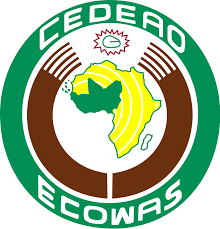The Economic Community of West African States (ECOWAS) expressed concerns over inadequate electricity generation and supply as well as high tariffs in the West African region.
During a weekly press briefing in Abuja, On Thursday, Sediko Douka, the ECOWAS Commissioner for Infrastructure, Energy, Mines, Water Resources, Digitalisation, and Postal Services, emphasized that development relies heavily on infrastructure as its foundation.
Despite this, Douka expressed sorrow over the current state of the energy sector in ECOWAS. He noted that the sector, that is crucial for ECOWAS, has a total production capacity of 25,421 GW, with the majority coming from thermal sources (77%), followed by hydro (22%) and just a small percentage from solar and wind (1%). The access rate to electricity has improved from 45% in 2019 to an average of 53% in 2023.
“Despite the rising numbers, there are notable discrepancies because the electricity availability in rural areas remains low at a rate of just 10 percent.
“Intra-regional electricity exchanges in the electric sector are currently low, at just nine percent. Additionally, high electricity prices in West Africa, standing at 0.24 USD or 150 FCFA per kWh, are hindering economic growth, particularly in the industrial sector. Overall, some of the primary challenges include.
“There is a lack of electricity being produced and transmitted in the region, despite having a significant energy potential available. For instance, although there is a hydroelectric potential of 26 GW, only 20% of it is currently being utilized.
“High tariffs and limited energy accessibility, along with an unbalanced energy mix skewed heavily towards thermal sources compared to hydroelectric sources, leading to a limited utilization of solar and wind energies.
According to Douka, in order to tackle the difficulties, ECOWAS established specific organizations in the energy sector, such as the West African Power Pool in Cotonou, Benin, the Regional Electricity Regulatory Authority in Accra, Ghana, the Centre for Renewable Energy and Energy Efficiency in Praia, Cape Verde, and the West African Gas Pipeline Authority in Abuja, Nigeria.
“The West African Power Pool Master Plan aims to implement 75 regional projects valued at $36 billion to construct 23,000 km of power interconnection lines and produce 16,000 MW of power from 2019 to 2033.
“The main goal of the WAPP is to unify the national electricity grids of the Community into a single regional electricity market. This aims to ensure that citizens in ECOWAS Member States have consistent, reliable, and affordable access to electricity in the future.”
ECOWAS Decries Inadequate Electricity Supply, High Tariffs in West Africa



